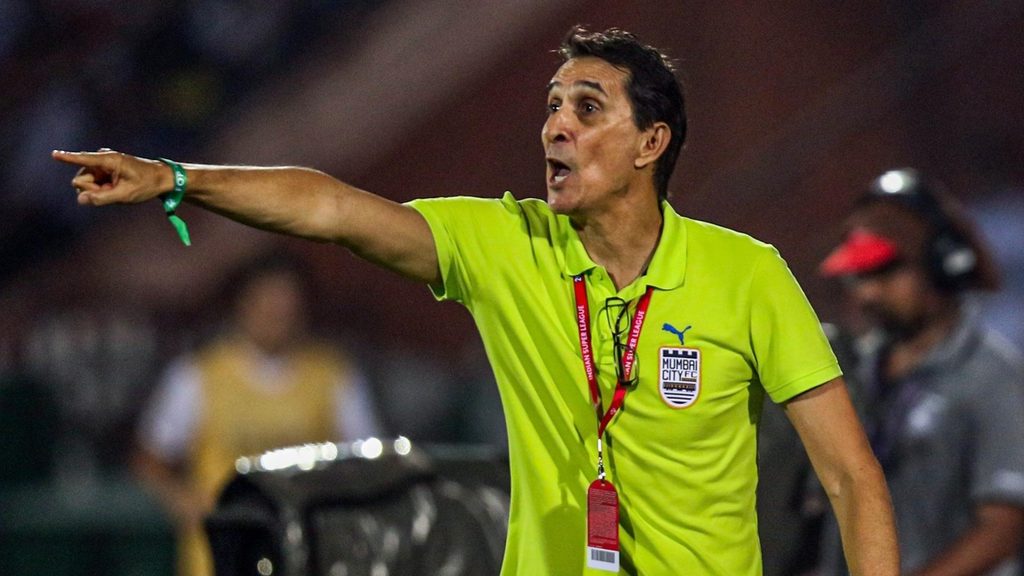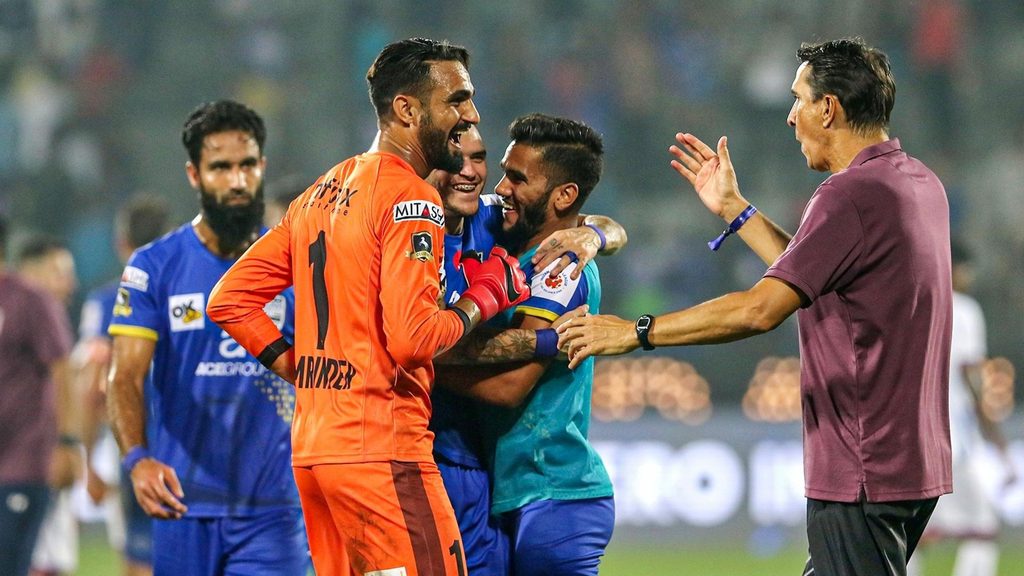Alexandre Guimaraes, the man who got Mumbai City FC going
The Costa Rican elevated standards at the Islanders setting up the foundations for a hugely successful period that followed a few years after his departure.

Alexandre Guimaraes was a big name who walked into the Mumbai City FC dressing room in 2016. He had overseen two FIFA World Cup campaigns as head coach for Costa Rica and had almost two decades of managerial experience across the globe.
However, he wasn’t the first one with a rich footballing CV who had been at the helm of affairs at Mumbai City FC. His predecessor, Nicolas Anelka, is one of the most celebrated names in world football and his stint as a player-manager had yielded disappointing results as Mumbai City FC had finished seventh and sixth respectively in the first two Indian Super League (ISL) campaigns.
The club had overseen a host of new signings in both the Indian and foreign departments. On the domestic front, Amrinder Singh, Anwar Ali, Jackichand Singh and Udanta Singh were brought in. While the likes of Matias Defederico, Diego Forlan, Lucian Goian, Krisztian Vadocz, Leo Costa, and Thiago dos Santos were signed to bolster the overseas contingent.
The addition of new players did increase the quality in the squad, but also added pressure of expectations along with the complexity of knitting them together into one unit.
Guimaraes had his work cut out.
Arrival and Immediate Impact

The Costa Rican went about his job with a sense of calm otherwise absent in the Mumbai City FC dugout in the previous season. His sense of composure and control rubbed off on his players as they won their first two games of the campaign without conceding a single goal. The two clean sheets set the tone for the rest of the season as defensive discipline became a hallmark of his team. The Islanders conceded just eight goals in the group stage and kept eight clean sheets, and finished the season at the top of the pile.
It wasn’t just a result of Guimaraes’ tactical acumen and ability to forge a team out of talented individuals who hadn’t spent too much time together on the training field; it was also a byproduct of astute man management.
Forlan, the Golden Ball winner of the 2010 FIFA World Cup arrived, bringing experience, flair and visibility. Guimaraes ensured his star man didn’t just give it his all for the cause and led by example, he also used him in a way where he found the back of the net, even when in the twilight of his career. The Uruguayan’s hat-trick in a 5-0 win over Kerala Blasters remains a highlight of that season. His goals provided moments of brilliance in a team that began to believe after two years of underachievement.
Grooming Amrinder Singh

The next season, Guimaraes stayed on. The confidence underpinning the club’s decision was rooted in what was achieved in 2016: topping the group stage, improving defensive solidity, and reaching the semi-finals.
Even though Mumbai City FC failed to hit the heights of the 2016 season following the departure of key players like Forlan, Chhetri and Norde, he managed to lay the foundations for the future as the ISL transitioned into a longer six-month league with more emphasis on Indian players.
One of his key achievements that season was grooming Amrinder Singh into being one of the top goalkeepers in the league. His performances earned him a lot of plaudits, and he went on to be the backbone of their team that won the ISL League and Cup double in 2020-21.
Leaving a legacy
His defensive organisation stood out: tight backline, compact midfield, keeping shape. Offensively, reliance was on intelligent foreign players bringing quality, but also on balanced contributions from Indian players. For instance, in defence and goalkeeping.
While the focus may be on the results, which headed south in 2017-18, Guimaraes’ defensive organisation became a part of the club’s DNA. Future head coaches – Jorge Costa, Sergio Lobera and even Des Buckingham - based their success on tight defences that allowed their attackers to flourish.
The Islanders hold the record of keeping the most clean sheets in ISL history, and it’s fair to say that Guimaraes deserves some credit for instilling those values at the club early on in their ISL journey.
Guimaraes’ tenure may not have delivered an ISL trophy, but his impact was tangible. He raised Mumbai City’s standards – professionally and competitively. His emphasis on defence, consistency, and retention of core players helped the club evolve into a serious contender. Mumbai City FC’s identity began to crystallise under him, something that would serve them in later years.

























